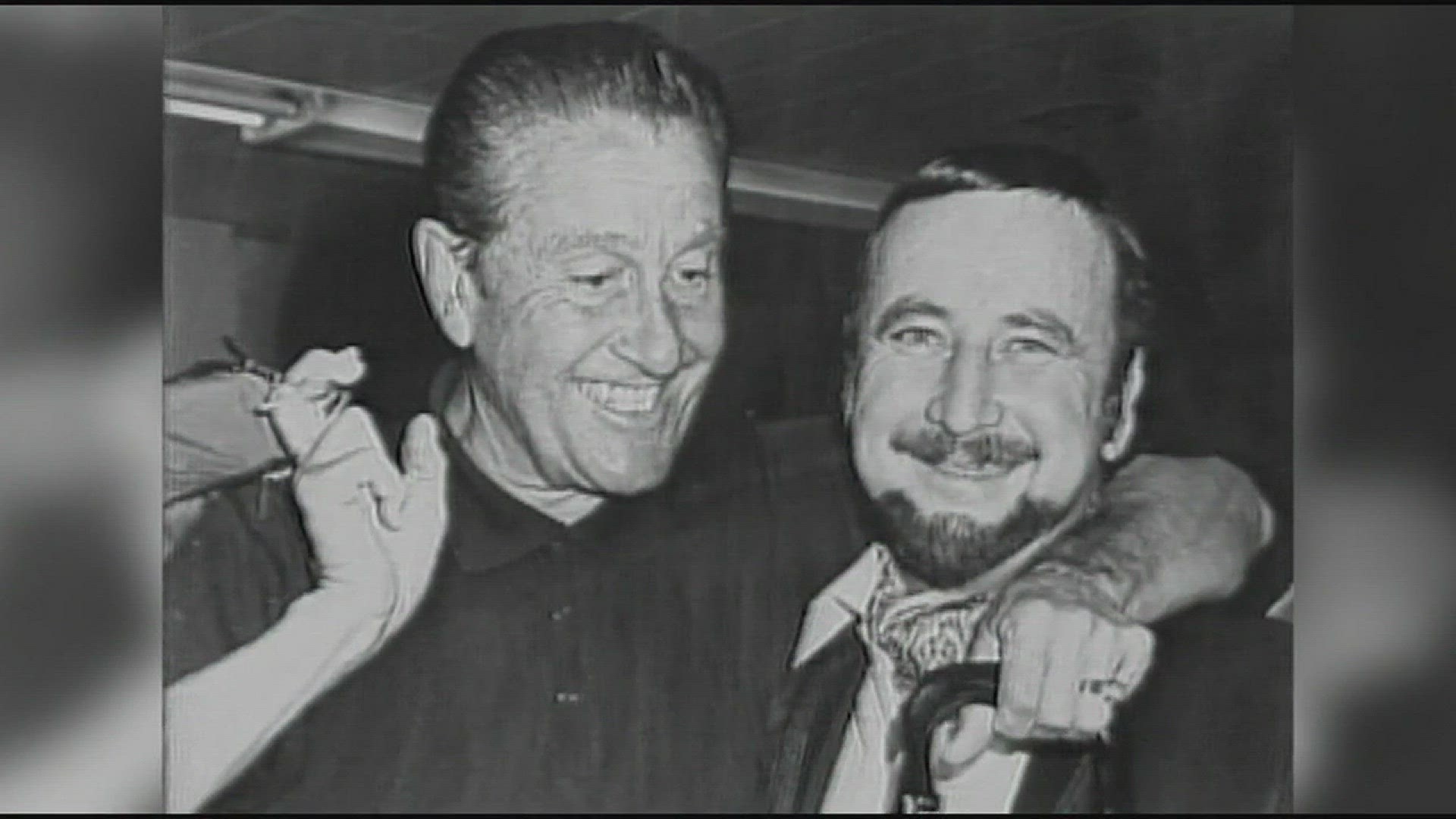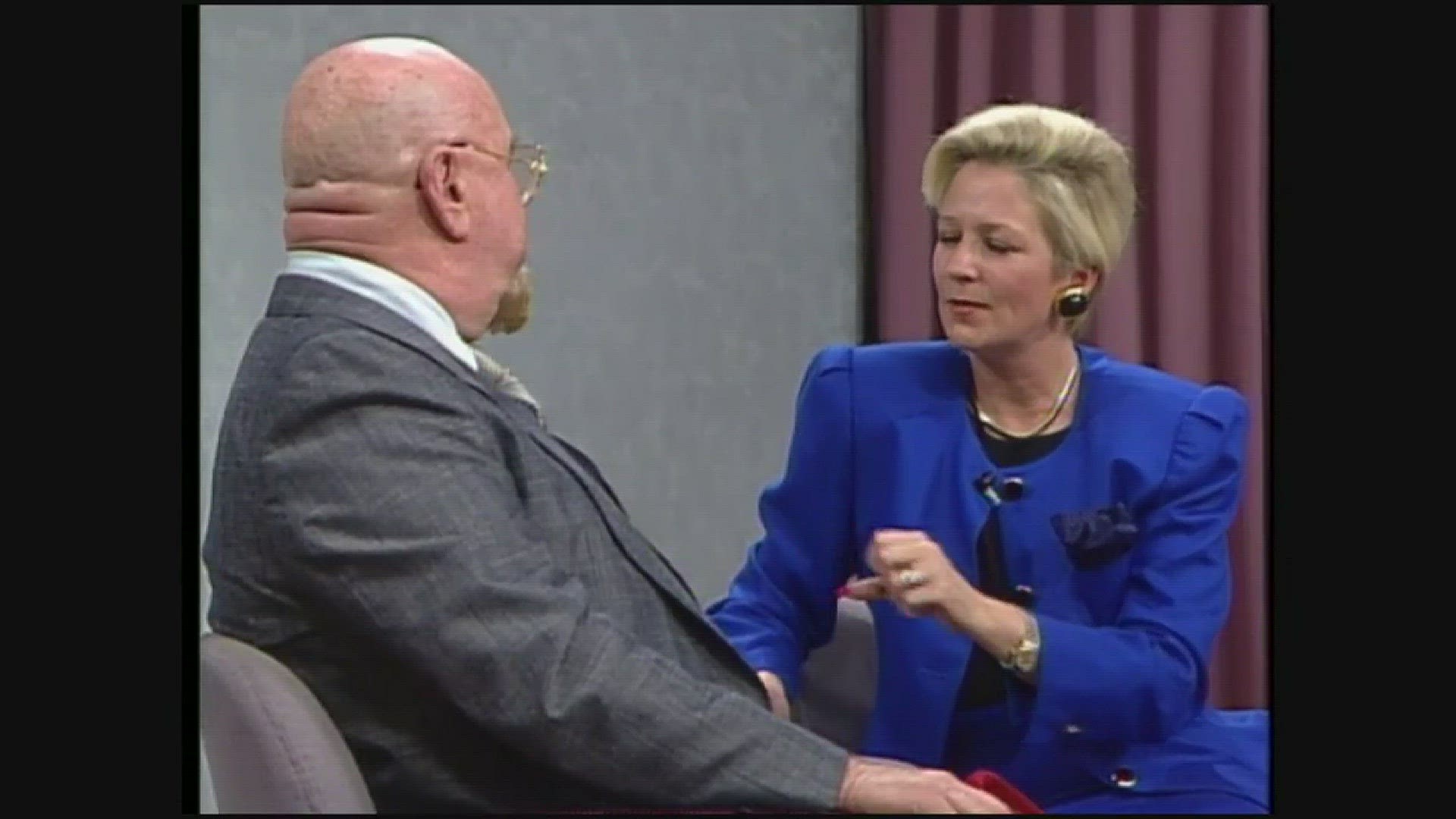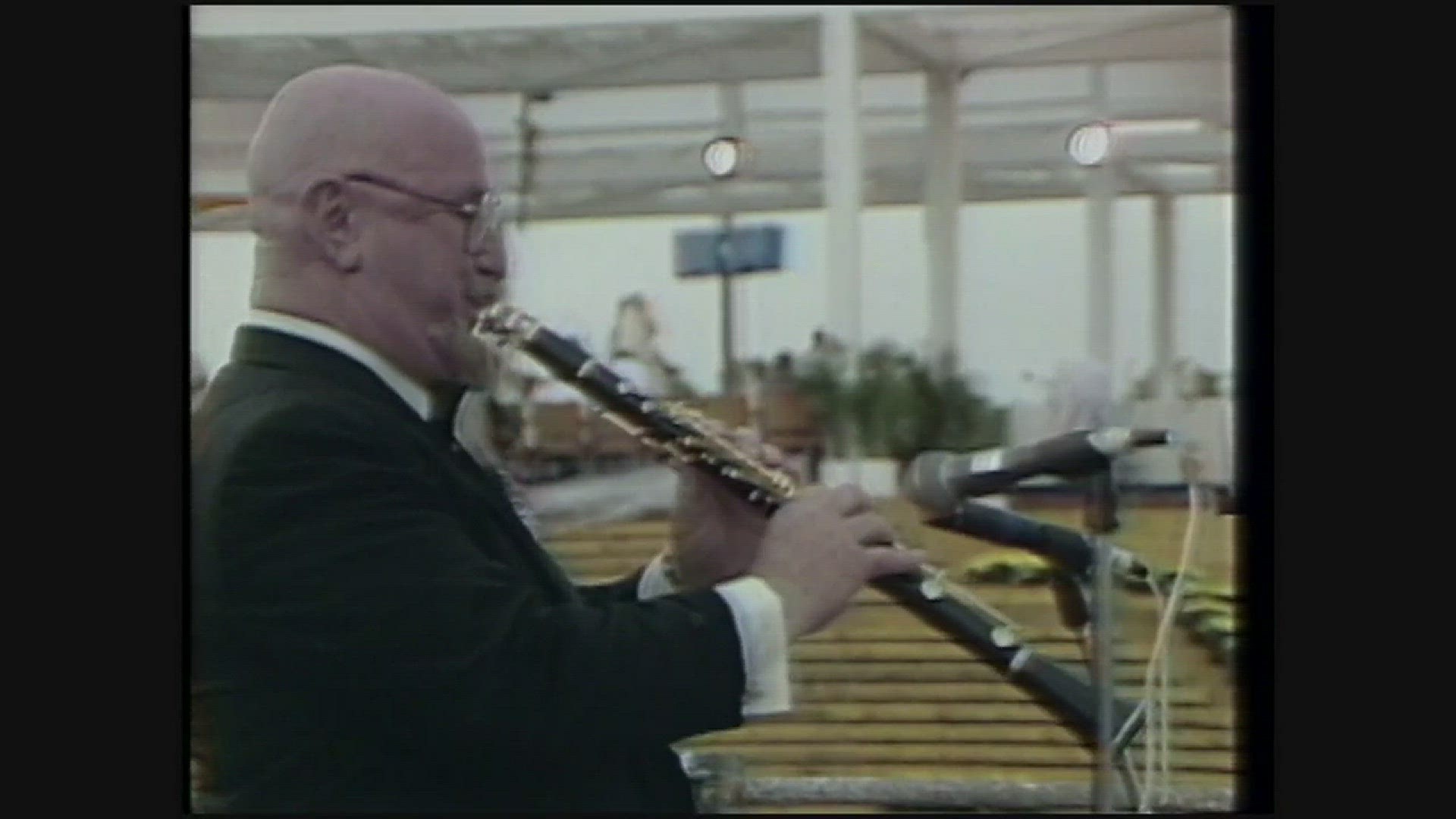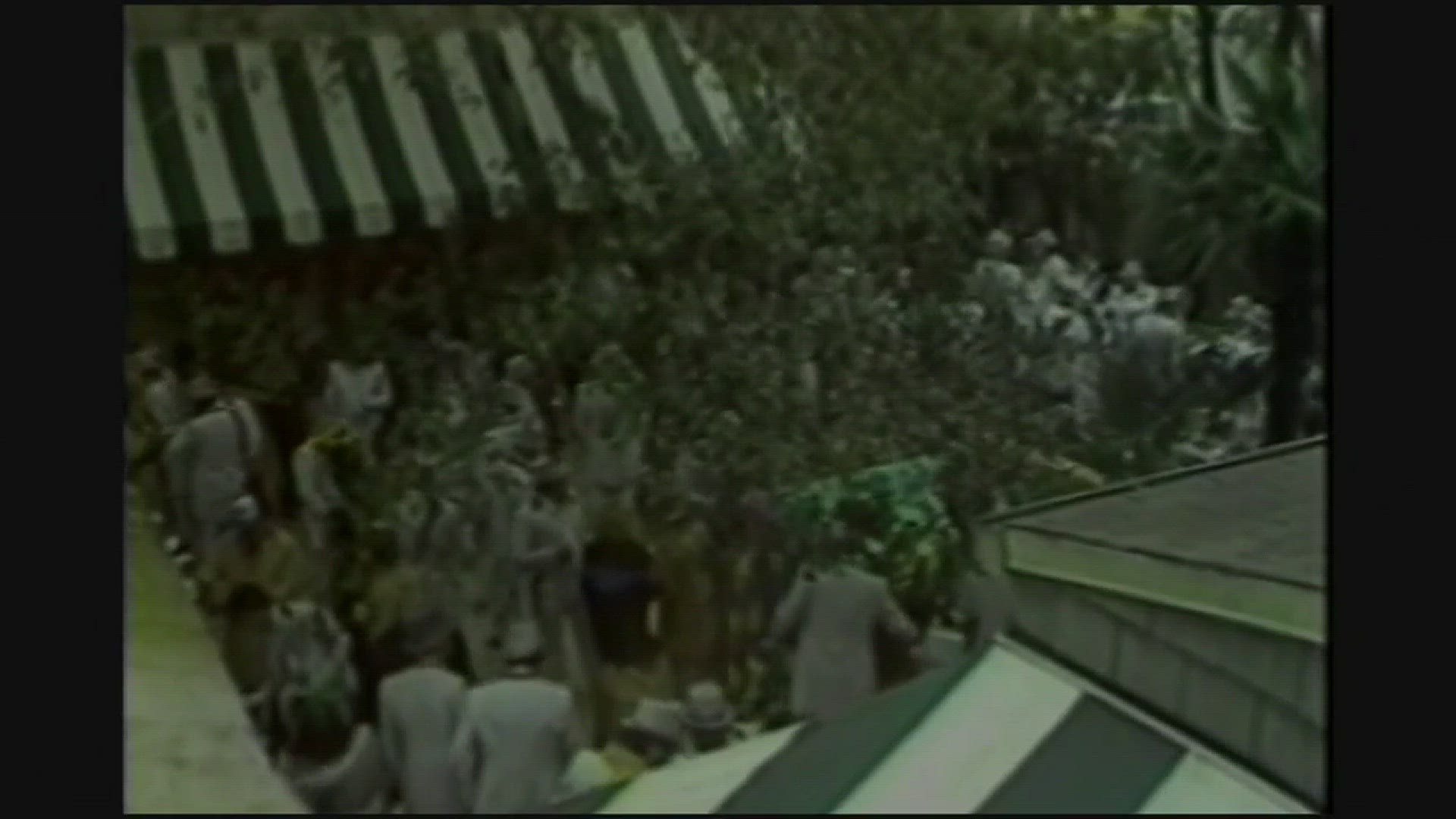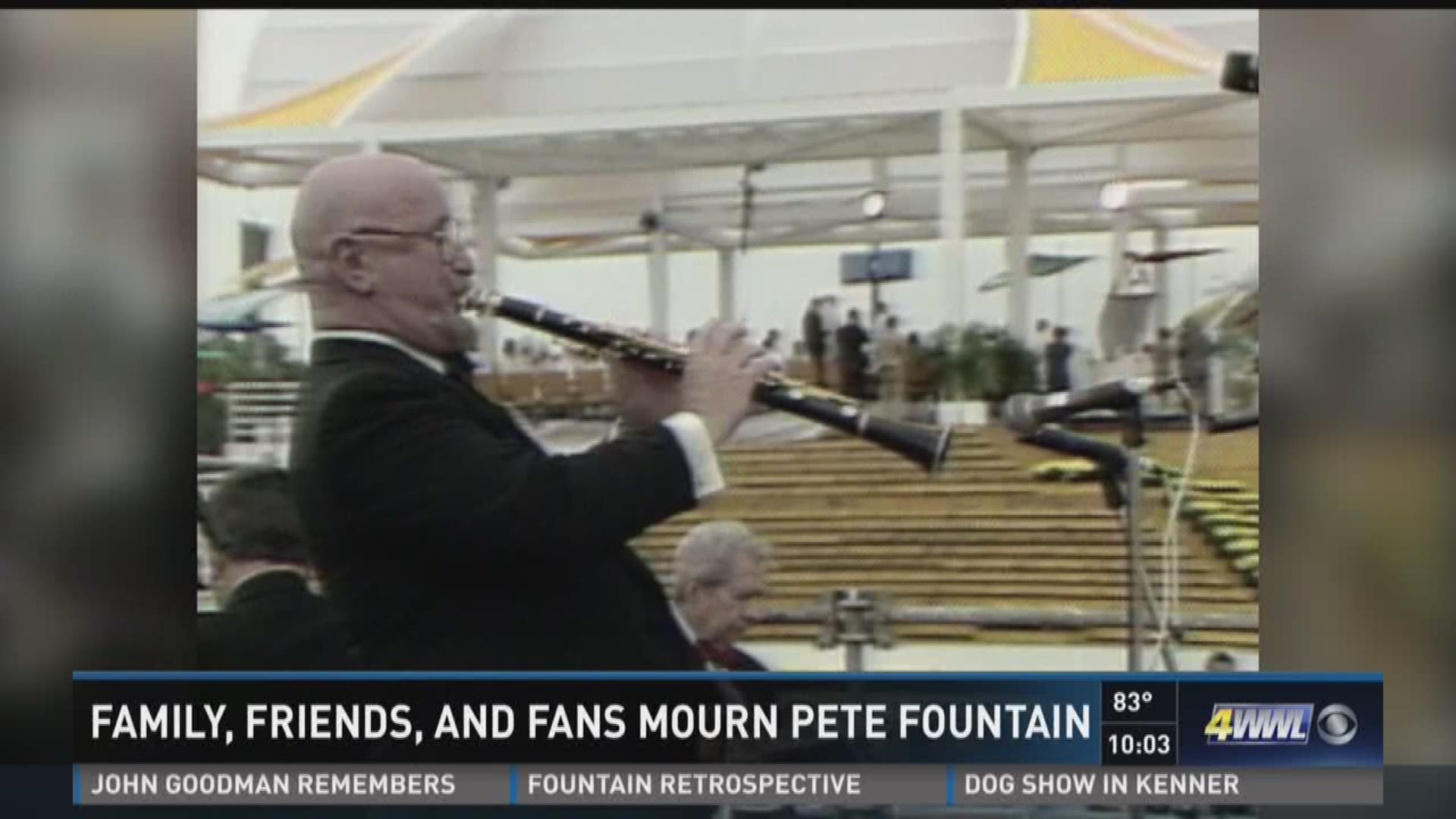NEW ORLEANS -- Pete Fountain, the famed New Orleans jazz clarinetist whose 60-year career was marked by performances for presidents and a pope, making him an international ambassador for the music and culture of his hometown, has died. He was 86.
Fountain died at 5:08 a.m. Saturday in New Orleans, a statement from his family said.
“It’s a sad day for his family. And it’s sad too for all of New Orleans. Pete and his clarinet brought a lot of love and music to the world. He will greatly be missed," said Benny Harrell, Pete Fountain’s son-in-law and longtime manager.
Fountain battled health problems in recent years, including heart surgery and a stroke, and retired from performing in April 2014. Until then, he had remained active, often performing alongside his protégé, clarinetist Tim Laughlin, at the New Orleans Jazz and Heritage Festival and French Quarter Festival.
This past February, he kept up his annual trek with his Half-Fast Walking Club, parading along the Uptown parade route on Mardi Gras, as the group has done since Fat Tuesday 1960 when Fountain debuted the club.
A mainstay of Bourbon Street clubs for many years, including one bearing his name in the 1960s, Fountain closed his landmark club in the Hilton New Orleans Riverside in 2003 but continued performing in New Orleans and at casinos on the Mississippi Gulf Coast, even after Hurricane Katrina destroyed his home in Bay St. Louis.
“I’m too slow and too nervous to steal, so I have to keep tootin’,” he joked in a WWL-TV interview shortly after the storm, saying he would continue to perform despite losing most of his belongings and musical memorabilia.
Born July 3, 1930 in New Orleans, Pierre Dewey Fountain Jr. began playing the clarinet following his doctor’s orders to strengthen his weak lungs. “I wanted to play the drums, which wouldn’t have helped my lungs,” he told WWL’s Angela Hill in a 1989 interview.
In high school at Warren Easton, he joined the marching band and continued to take private music lessons. But it was on-the-job training that made all the difference. Late-night gigs on Bourbon made it difficult for the 16-year-old to stay awake in class. A teacher chastised him, but after learning how much the young man was earning per night (at $150, it was more than the teacher’s salary), Fountain said the teacher told him to put down his books and make a go of it. “I went to the Conservatory of Bourbon Street for many years,” Fountain often joked.
Once he began to perform professionally, he and close friend George Girard founded the Basin Street Six, performing at Lenfant’s Restaurant among other venues. Fountain later teamed up with the Dukes of Dixieland before television brought his talents to an even larger audience.
In the 1950s, he spent two years on bandleader Lawrence Welk’s television show, which beamed Fountain’s Dixieland sound into America’s living rooms once a week. The bandleader’s teenage son gets the credit for discovering Fountain and recommending that his father have the young clarinetist join the show.
But after two years, musical differences led a homesick Fountain (plus his wife Beverly and their three children) to head back to New Orleans, where the French Quarter called. He opened his own club on Bourbon Street, just blocks away from the club owned by his longtime friend Al Hirt. Fountain would later move to the Hilton, which became home base for a musical career that continued to grow. Even after finding national success, there were lean times. Fountain and Hirt even worked as pest control men for a brief period.
“He was in the roach division. I was in the termite division,” Fountain joked.
Fountain also liked to say that, had he not found success in music, he would have easily been able to take over the delivery route for his father “Red,” a Dixie Beer truck driver who loomed large in his life and career.
As his stature grew, Fountain performed regularly on “The Ed Sullivan Show” and became a regular on "The Tonight Show" through the Johnny Carson years, appearing there 59 times. He earned four gold albums, recorded more than 50 total and performed on some 44 more.
He performed for four U.S. presidents and called his 1987 performance of “Just A Closer Walk with Thee” at the Mass celebrated in New Orleans by Pope John Paul II the pinnacle of his career.
Fountain was equally famous for embodying the spirit of New Orleans’ biggest celebration – Mardi Gras – with his costumed jazz band walking the parade route each year (with Fountain in recent years riding at the head of the parade in a special bandwagon, his son-in-law and manager Benny Harrell at his side).
Fountain’s famous friends often went along for the fun – from Hirt and Phil Harris to adopted New Orleanian John Goodman. The Half-Fast Walking Club was named by Fountain’s wife Beverly, a not-so-subtle play on words describing the ragtag bunch that was known to overindulge along the way.
Fountain always credited Beverly, whom he married in 1951, with keeping him out of trouble, taking care of their three children, tolerating what could sometimes be an entertainer’s wild lifestyle and supporting him in so many other ways.
“She put up with my foolishness, really, through all the years. The girl should have left 100 years ago. She was my anchor,” he said in a 1989 interview.
Beverly was at his side in 2013, when he was the honored guest at a fundraising concert for his alma mater, Warren Easton High School, featuring fellow alums Troy “Trombone Shorty” Andrews and Nicholas Payton.
In addition to his wife, Fountain is survived by three children, six grandchildren, and five great-grandchildren. Funeral arrangements are pending but will include a traditional New Orleans second line, the family said.

